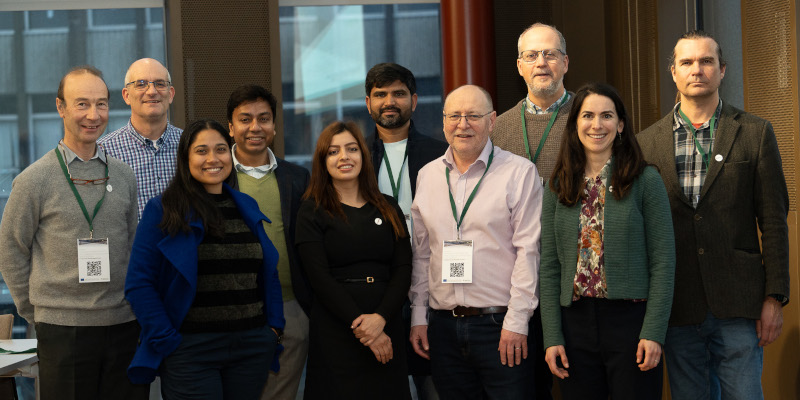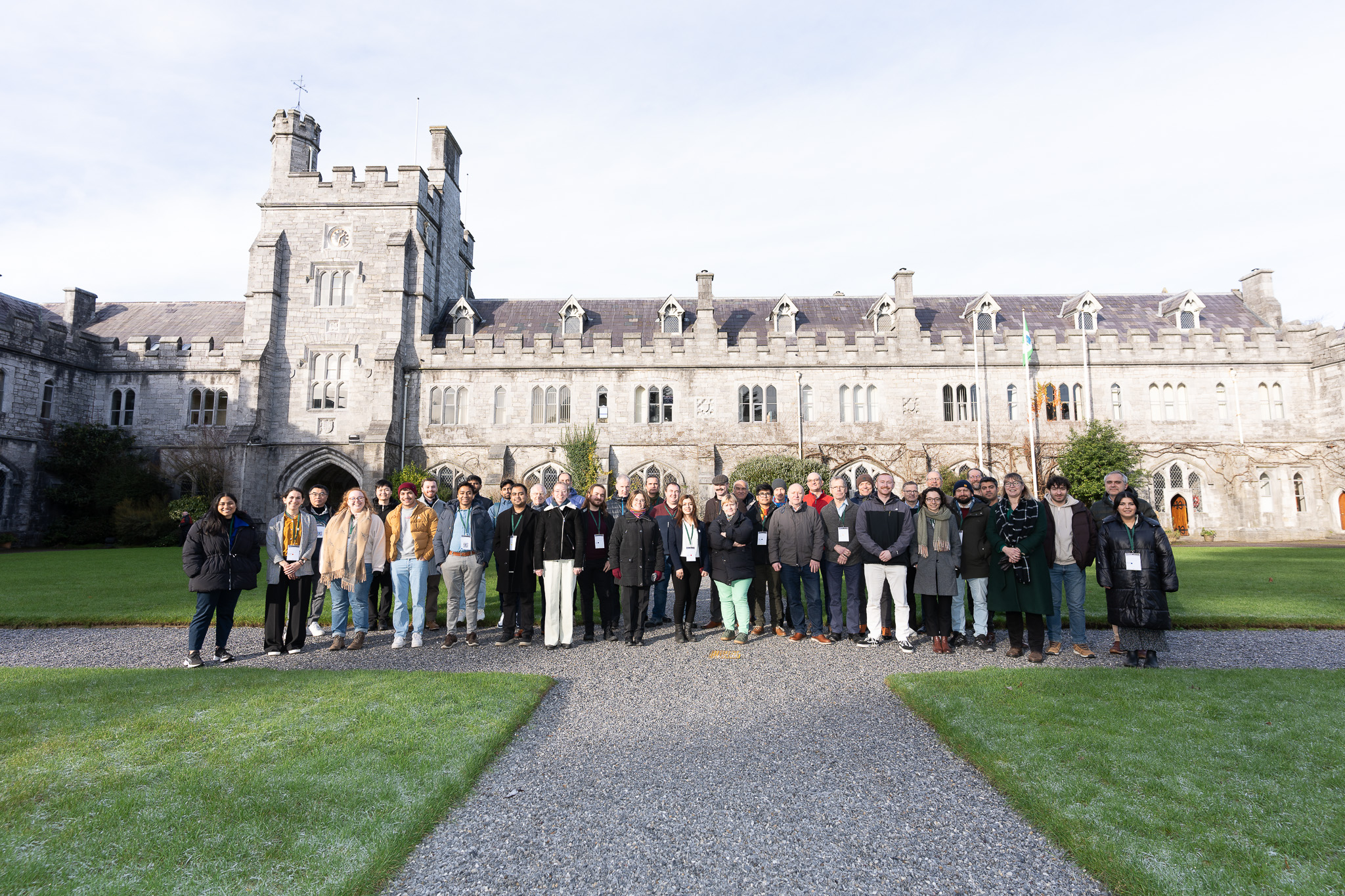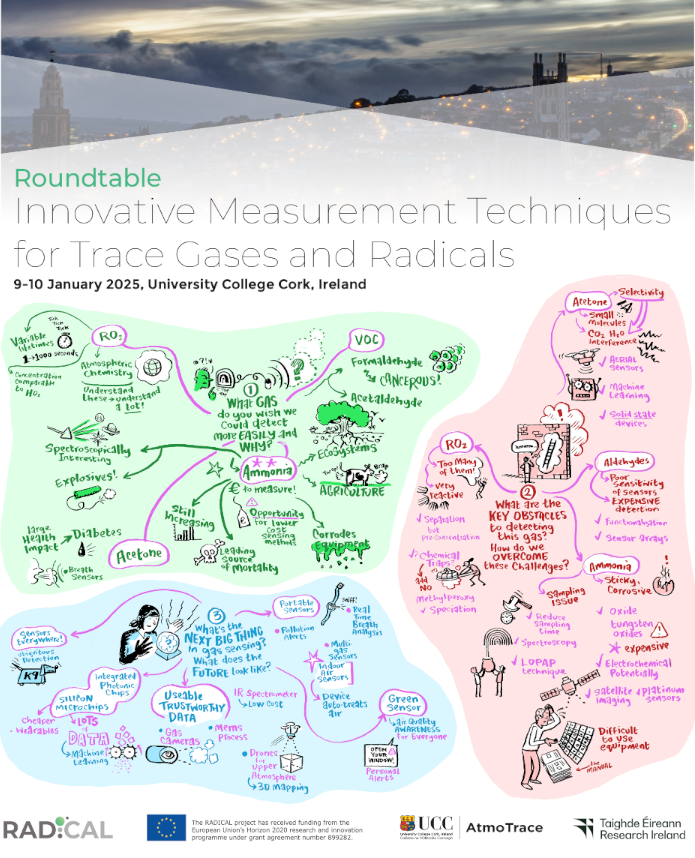In This Section
School of Chemistry Hosts Two-Day Multidisciplinary Symposium

Earlier this month, researchers from UCC School of Chemistry and School of Physics hosted a unique, multidisciplinary symposium on ‘Innovative Measurement Techniques for Trace Gases and Radicals’.

On 9-10 January 2025, a diverse group of 50 materials scientists, atmospheric chemists and gas sensor experts from across Europe assembled in Cork to explore cutting-edge detection technologies for trace gases and atmospheric radicals.
The event included six thematic sessions featuring 23 talks, including 5 PhD student presentations. Speakers covered innovative topics ranging from the development of compact, low-cost gas sensors to recent advancements in photonics and spectroscopy for improved sensitivity and accuracy.
A roundtable discussion served as the symposium’s concluding session, focusing on the future of trace gas and radical detection. As ideas flowed freely, artist Philip Barrett (Blackshapes) captured these discussions in a live illustration, creating a visual representation of the innovative concepts that emerged.

The event marks the end of the EU-funded RADICAL project, led by Prof. Justin Holmes (UCC School of Chemistry) for the past four years. RADICAL has successfully developed an innovative, electronic sensor for detecting atmospheric radicals and other trace gases for improved air quality monitoring.
“This symposium was the perfect forum to showcase our RADICAL sensor to a select group of gas sensing experts from a wide range of disciplines. The event was collaborative, friendly and scientifically inspiring”, says Justin Holmes. “Short-lived atmospheric radicals are believed to play a key role in air quality cycles. By directly monitoring their concentrations at local, regional and global levels, scientists will have a greater ability to predict and control air quality, ultimately improving the quality of life for citizens.”
School of Chemistry researchers Prof. John Wenger, Dr. Subhajit Biswas, Dr. Stig Hellebust, Dr. Niall O’Sullivan and Vaishali Vardhan have also played critical roles in developing and testing the sensor.
Unlike traditional lab-based techniques for detecting radicals, the RADICAL sensor is low-cost, small, and able to be deployed on a global scale. This will help scientists better monitor and model the role of radicals in air quality and climate change.
These sensors can also be adapted to detect other types of gases with a wide range of potential applications across manufacturing, health, and chemical industries.
This symposium was jointly organised between UCC’s School of Chemistry and School of Physics. Along with materials and atmospheric chemists from the RADICAL project, physicists from the UCC-led AtmoTrace project co-hosted the event.
AtmoTrace is a Research Ireland-funded project to develop innovative optical sensing techniques to detect trace gases such as HOX and NOX radicals in the atmosphere.
For more details and photos from the event: “Inspiring symposium marks the final chapter of RADICAL”.
School of Chemistry
Scoil na Ceimic
Contact us
Second Floor, Kane Building, University College Cork, T12 YN60
